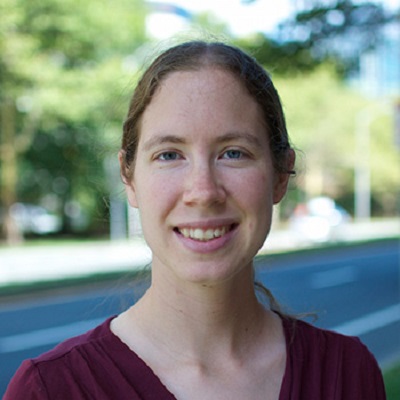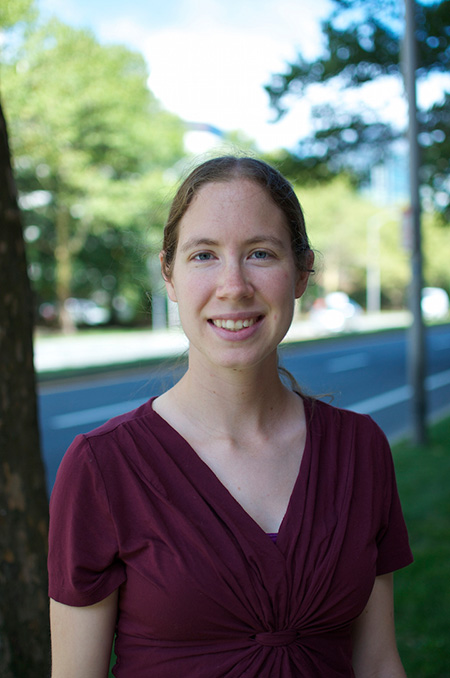
A UC San Diego professor who splits her time between the Computer Science and Engineering department and the School of Medicine has been selected to receive an award from the National Institute of Health’s (NIH) 2017 High-Risk, High-Reward Research Program.
NIH created the awards for "exceptionally creative scientists” to support unconventional approaches to major challenges in biomedical research.

professor Melissa Gymrek honored for
work on algorithms to better understand
genetic variation in humans and diseases
caused by gene mutations.
Through the program, Melissa Gymrek, an assistant professor in CSE and SOM's Divison of Genetics, will receive the NIH Director’s Early Independence Award.
The High-Risk, High Reward program, part of the NIH Common Fund, accelerates scientific discovery by supporting high-risk, high-impact research proposals that may not fare well in the traditional peer review process despite their potential to advance the field. Applicants of the program are encouraged to think outside the box and to pursue exciting, trailblazing ideas in any area of research relevant to the NIH mission.
“I continually point to this program as an example of the creative and revolutionary research the NIH is supporting,” said NIH Director Francis Collins, M.D., PhD. “The quality of the investigators and the impact their research has on the biomedical field is astounding. I always look forward to seeing what the new awardees are proposing and to watching how it is accomplished over the years.”
Gymrek, who joined UC San Diego in 2016, studies genetic variation in humans. More specifically, her work focuses on mutations linked with variations in copy numbers of short tandem repeats, or microsatellites.
These mutations already have been implicated in about 30 conditions. The best known may be Huntington’s Disease, which causes the progressive breakdown of nerve cells in the brain. About 30,000 people suffer from the condition in the United States. These people all have more than 40 copies of a specific repeat. The more copies they have, the sooner they are affected by the disease and the more severe it is.
Gymrek works on developing algorithms and other tools to better understand tandem repeats and answer questions regarding their properties and impact at a genome-wide and population-wide scale. She was selected as one of Forbes magazine's 30 Under 30 in 2017. More information is available at the Gymrek lab website.
The NIH Director’s Early Independence Award, established in 2011, provides an opportunity for exceptional junior scientists who have recently received their doctoral degree or completed their medical residency to skip traditional post-doctoral training and move immediately into independent research positions.
Only one other UC San Diego researcher received a High-Risk, High-Reward Research Award for 2017: Emma Farley. Like Gymrek, Farley has dual faculty appointments: she is an assistant professor in both Biological Sciences and the School of Medicine. Farley will receive the NIH Director’s New Innovator Award.

